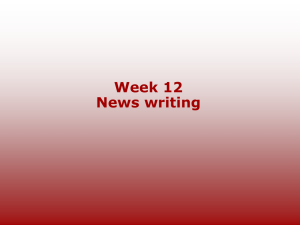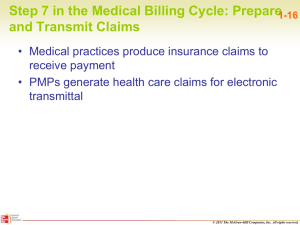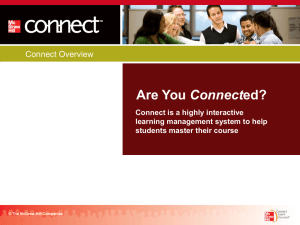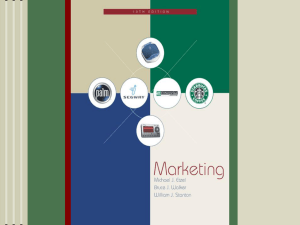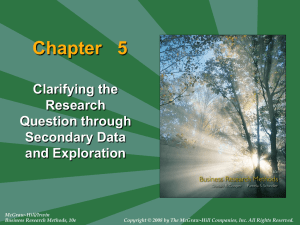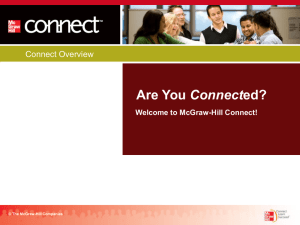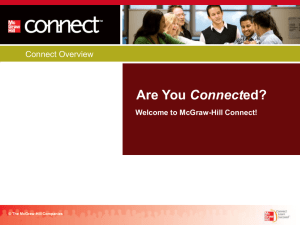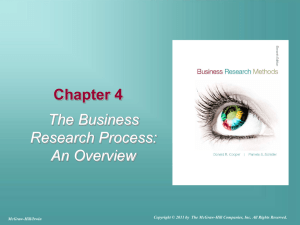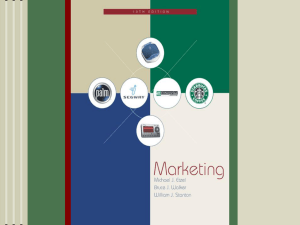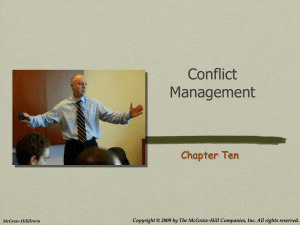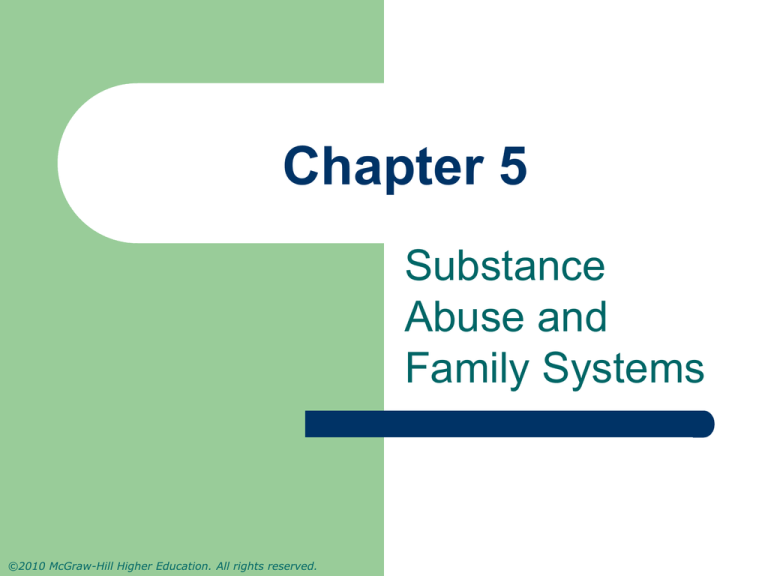
Chapter 5
Substance
Abuse and
Family Systems
©2010 McGraw-Hill Higher Education. All rights reserved.
Families as Systems
Systems
seek balance
Dependency
©2010 McGraw-Hill Higher Education. All rights reserved.
causes imbalance
Families as Systems
Healthy – balanced, open, flexible,
predictable
Imbalanced/dysfunctional – rigid,
inflexible, unpredictable
–
–
Richard Fields thinks “dysfunctional” is too
shame based and we should not use it.
Virginia Satir described a dysfunctional family
system as a mobile that requires a delicate
balance. She described functional
communication as “leveling.”
©2010 McGraw-Hill Higher Education. All rights reserved.
Alcohol Family System
Family Rules in an alcoholic or user family:
1. Don’t talk
2. Don’t trust
3. Don’t feel
Carl Whitaker described a family as “the
source of all kinds of electrical energy,
with positive and negative voltages.
©2010 McGraw-Hill Higher Education. All rights reserved.
Rigid Family Systems
Rules – Strict interpretation of the rules with no
exceptions; inflexibility with no extenuating
circumstances. The rules keeper (usually
father) is exempt from the rules.
Values – “There is only one way to do things and
that is the right way – my way.” Things are
always black or white, right or wrong.
Motto – “Do it right, or else.”
©2010 McGraw-Hill Higher Education. All rights reserved.
Rigid Family Systems cont’d
Communication – Linear, hierarchical. The father
is usually dominant, powerful, and
unapproachable. Mother softens the impact of
father’s harshness.
Drugs of choice – Alcohol and/or heroin,other
sedative hypnotics and narcotic analgesics.
Functions of drug – Suppress feelings, especially
anger, and stay numb to the trauma in this
family system.
©2010 McGraw-Hill Higher Education. All rights reserved.
Ambiguous Family Systems
Rules – We have rules but we don’t enforce
them, and we change them if someone is
annoyed or inconvenienced.
Values – Forever changing, based on the
situation
Motto – “Keep peace at all cost, avoid conflict.”
©2010 McGraw-Hill Higher Education. All rights reserved.
Ambiguous Family Systems
cont’d
Communication – Mixed messages that are crazy
making. “Do what you know we want, without
letting us know what it is we want.”
Drugs of choice – Alcohol and/or heroin,
marijuana and hallucinogens.
Functions of drug – Suppress feelings of
discomfort, kill pain, shut out reality and/or
distort reality.
©2010 McGraw-Hill Higher Education. All rights reserved.
Overextended Family Systems
Rules – Be productive, get busy, stay on the
move
Values – Look good, achieve, do it with willpower,
feelings are for wimps
Motto – “We can achieve anything we set our
minds to.” “The right stuff.”
©2010 McGraw-Hill Higher Education. All rights reserved.
Overextended Family Systems
cont’d
Communication – Feelings are not expressed or
integrated; decisions are based on results and
what will please the parents.
Drugs of choice – Cocaine, methamphetamine
and other stimulants, alcohol
Functions of drug – Keep on working/doing, even
though feelings are not congruent with work or
intimate relationships.
©2010 McGraw-Hill Higher Education. All rights reserved.
Distorted Family Systems
Rules – Don’t let outsiders know we are crazy.
Act as if we were a normal family, just a bit
eccentric.
Values – Maintain an illusion of normalcy, despite
significant physical, emotional and
interpersonal problems of the family. Keep
outsiders guessing about us.
Motto – “Aren’t most families like ours?”
©2010 McGraw-Hill Higher Education. All rights reserved.
Distorted Family Systems cont’d
Communication – Mixed messages; parents and
children are unavailable and have limited
common perceptions of situations.
Drugs of choice – Alcohol, hallucinogens,
marijuana and inhalants.
Functions of drug – Distort reality, which is
already distorted, to try and make sense, or no
sense, of it.
©2010 McGraw-Hill Higher Education. All rights reserved.
Styles of Communication (SATIR)
Placaters – discount themselves
Blamers – elevate themselves by
discounting others
Intellectualizers – discount their own
feelings
Distractors – distract from painful
feelings, avoid conflicts
©2010 McGraw-Hill Higher Education. All rights reserved.
Family Roles (Wegscheider-Cruse)
the family hero
the family scapegoat
the lost child
–
The one most likely to commit suicide
the family mascot
the chief enabler
©2010 McGraw-Hill Higher Education. All rights reserved.
Kinds of Enabling Behaviors
(Charles Nelson)
1.
2.
Avoiding and shielding to sidestep issues
Attempting to control
1.
3.
4.
5.
E. g., by buying things to divert the addict from
drug use
Taking over responsibilities
Rationalizing and accepting
Cooperating and collaborating
©2010 McGraw-Hill Higher Education. All rights reserved.
Denial
Feelings – embarrassed, humiliated, shamed
Defenses – minimization, rationalization
Linkage to society – friends and relatives
“maintain the denial”
Motto – “normal family illusion”
Goal – deny problem
©2010 McGraw-Hill Higher Education. All rights reserved.
Anger
Feelings – confusion, fear, anxiety
Defenses – “raging and ragging”, control to
chaos, trial & error
Linkage to society – search magical solutions
Goal – cover-up real issues and feelings
©2010 McGraw-Hill Higher Education. All rights reserved.
Bargaining
Goal - “maintain in chaos”
Bargains – compromise values, love/hate – let
go/hold on, avoid making a decision, confused
– doesn’t know what is appropriate
Depression/Feelings – feelings are experienced
Acceptance – there is a problem, on road to
recovery
©2010 McGraw-Hill Higher Education. All rights reserved.


